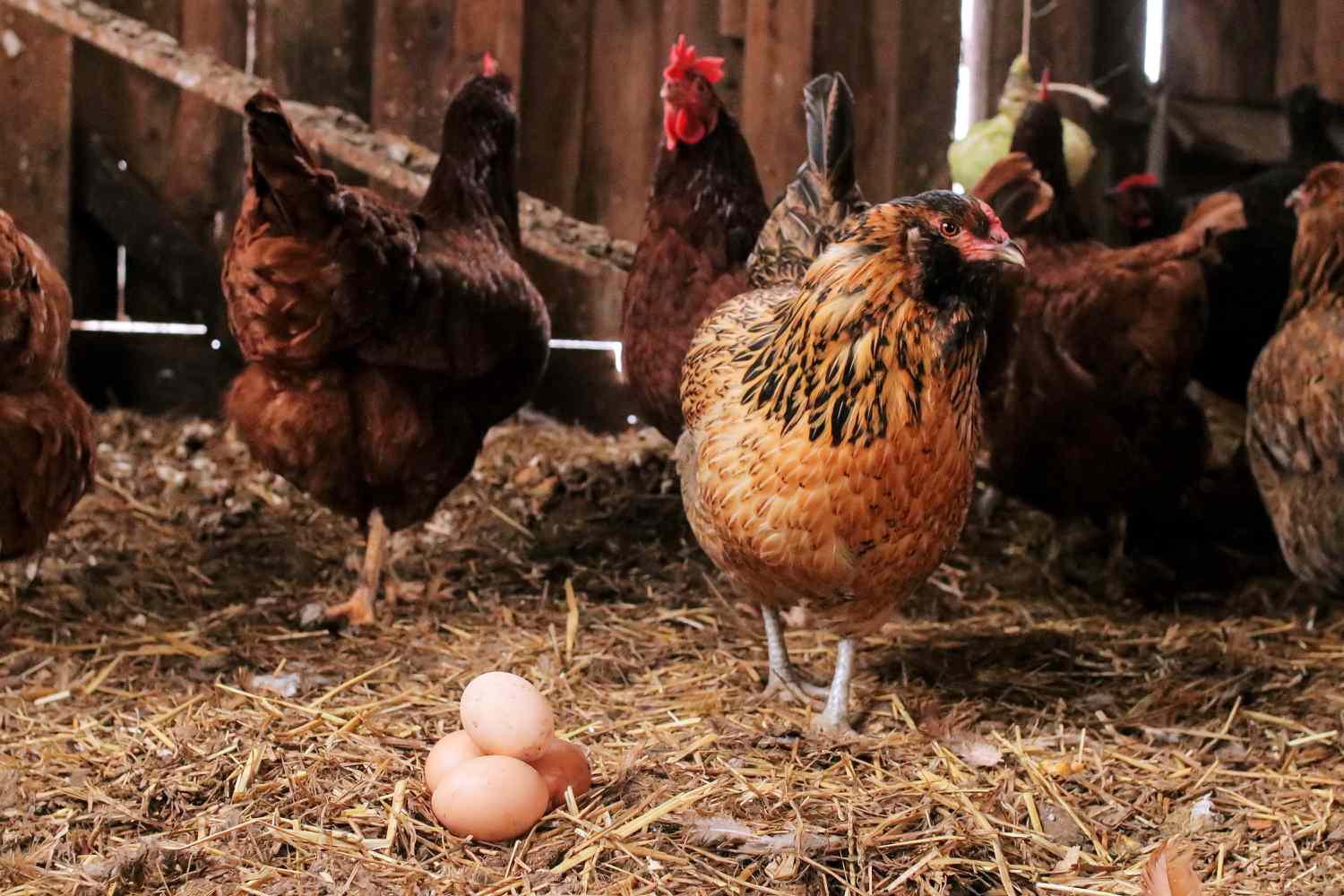The practice of chickens eating chicken may seem counterintuitive, but sustainable chicken husbandry is a practice that is gaining in popularity. This practice involves raising chickens that are fed on a diet of other chickens, creating a closed loop system that reduces resources and waste. In this article, we will discuss the benefits of sustainable chicken husbandry and how to practice it.
What is Sustainable Chicken Husbandry?
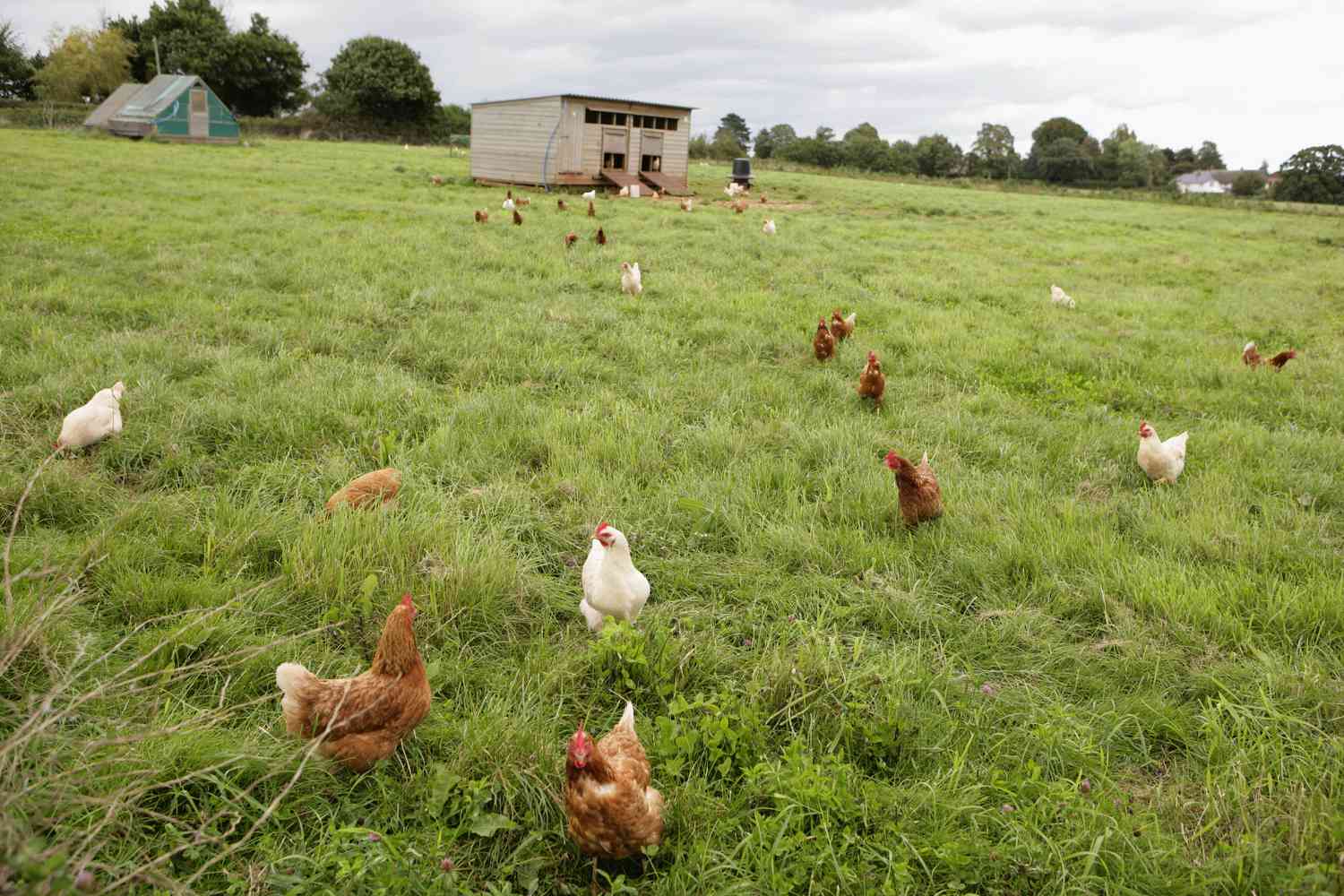
Sustainable chicken husbandry is a way of raising chickens that emphasizes the health and well-being of the animals and the environment. This approach to chicken keeping is based on humane, ecological, and economical principles while promoting the long-term sustainability of the flock.
It involves creating an environment that allows chickens to live their natural lives, with their natural behaviors, and to be free of unnecessary stress. This includes providing a safe, secure, and comfortable living space, along with access to fresh, clean water and nutritious food.
Sustainable chicken husbandry also promotes the reuse and recycling of resources, such as food scraps, manure, and other materials, in order to create a more sustainable and ethical chicken-keeping system. This includes incorporating chickens into a garden or other agricultural system, using chickens to control pests, and using the chickens’ droppings to fertilize the garden.
Additionally, sustainable chicken husbandry involves taking steps to protect the welfare of chickens and to reduce animal suffering, such as providing adequate space for them to roam, protection from predators, and proper veterinary care. It also includes introducing natural predators, such as owls, to the area in order to keep the population of chickens in balance.
Overall, sustainable chicken husbandry is an ethical and responsible way of keeping chickens that takes into account the needs of both chickens and humans. It is a way of “eating chickens” in the sense of utilizing chickens as a sustainable food source, while also taking steps to ensure the welfare of the chickens and the environment.
Benefits of Sustainable Chicken Husbandry
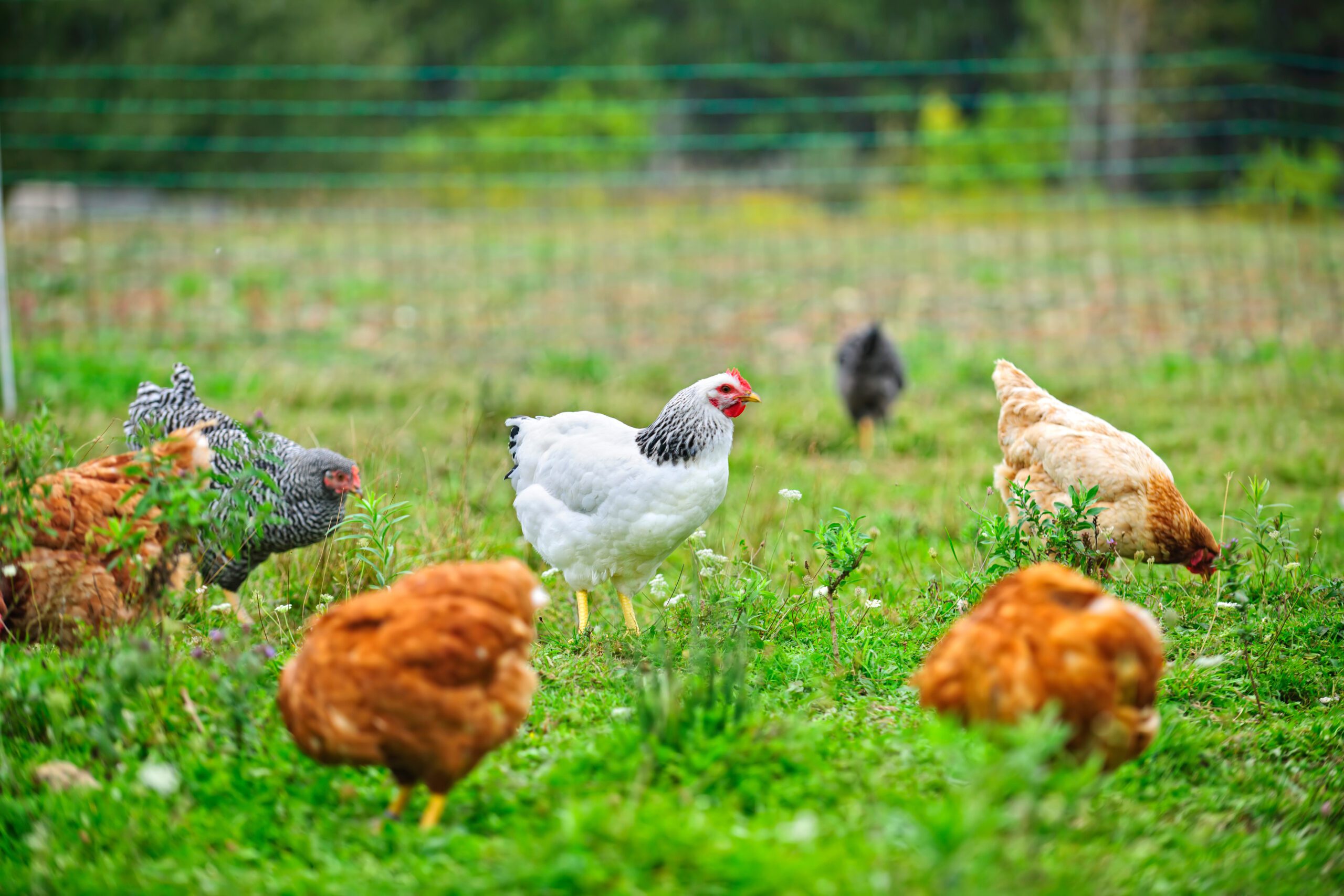
Improved Chicken Health
Providing chickens with the opportunity to forage for food, access to natural areas for dust bathing, and access to natural light encourages healthier chickens. This encourages chickens to develop a more natural behavior, which can help to reduce stress, as well as protect them from disease and illness. A healthier chicken population means less money spent on veterinary bills.
Reduced Environmental Impact
Managed grazing, rotational pasturing and other sustainable husbandry practices can reduce the environmental impact of chicken production. By allowing chickens to forage in natural areas, it reduces the amount of resources needed to produce feed. Additionally, chickens can be used to naturally manage vegetation, which can reduce the amount of fossil fuels used for land maintenance. Sustainable chicken husbandry can also reduce pollution and help promote healthy soil.
Improved Animal Welfare
Allowing chickens to roam and forage freely, providing them with natural areas to dust bathe, and allowing them to access natural light, can all improve the welfare of the chickens. This can reduce the stress of confinement while also encouraging natural behaviors. Additionally, allowing chickens to naturally scavenge for food can provide them with a more varied diet and can help reduce the potential of nutritional deficiencies. By providing chickens with a more natural living environment, their welfare can be greatly improved.
Feeding Chickens Eating Chickens
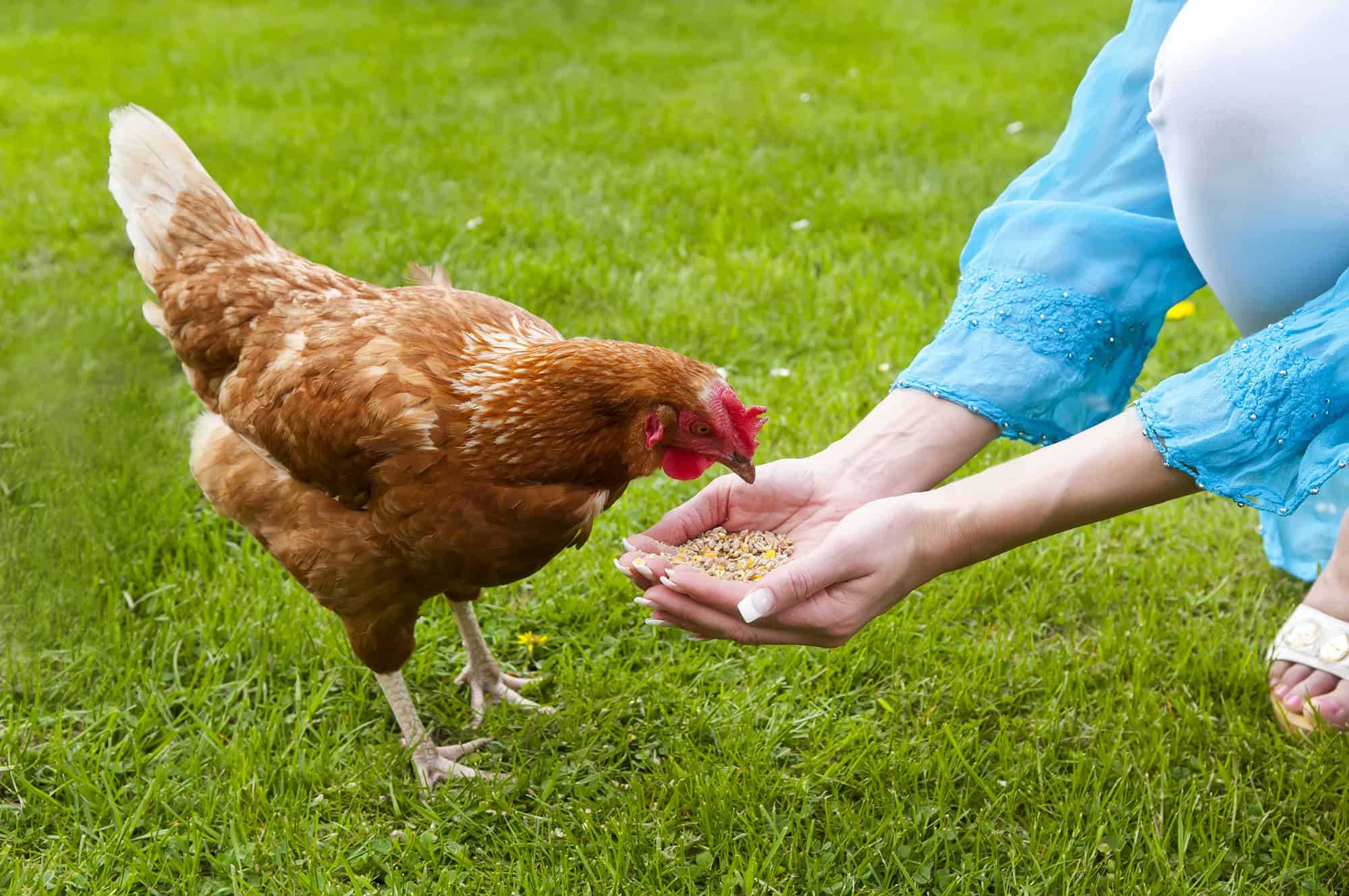
Is It Safe?
The practice of feeding chickens to other chickens may seem controversial, but it is actually a safe and beneficial practice in sustainable chicken husbandry. Many farmers and homesteaders have used this practice to reduce feed costs, provide a balanced diet, and to increase the overall health of their flock. It is important to note, however, that it is not safe to feed raw chicken meat to other chickens.
Nutritional Value
When chickens are fed cooked chicken, they receive all the same nutritional benefits they would from a traditional diet. This includes protein, fats, vitamins, and minerals. Cooked chicken is also a great source of calcium, which is essential for strong eggshells and healthy bones. Additionally, some farmers and homesteaders have reported that chickens fed a diet of cooked chicken have a more robust and flavorful meat.
How to Implement Sustainable Chicken Husbandry
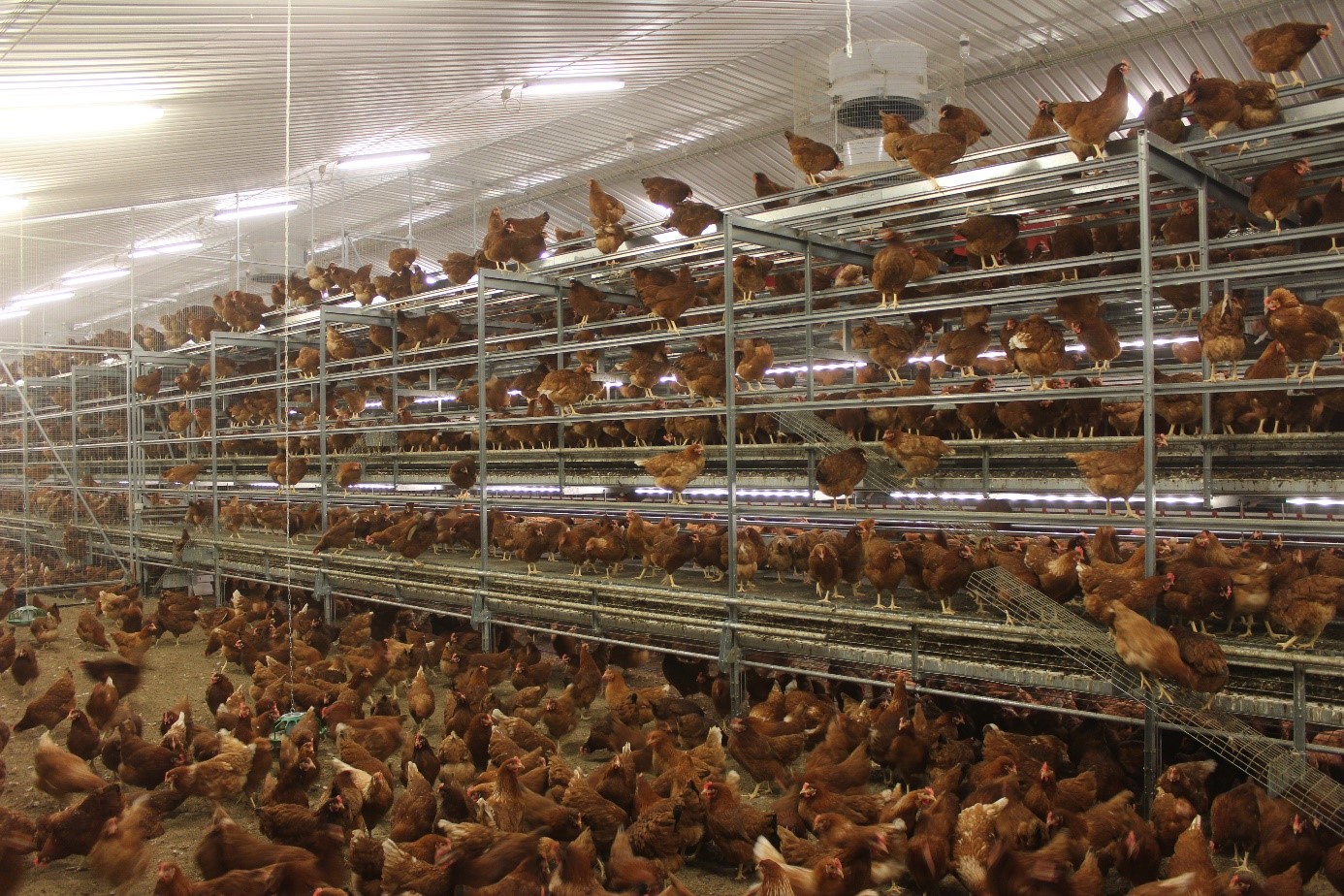
Feeding
A variety of feed should be provided to chickens, this includes grains, vegetables, fruits, and insects. Feeding chickens a variety of food helps to ensure that they receive all the nutrients they need. To ensure the health of the chickens, the feed should be fresh and free of contaminants.
Housing
Chickens should be housed in clean and dry enclosures, with sufficient space for them to move around. The enclosure should have roosts and nest boxes, allowing the chickens to have a safe and comfortable place to rest. The enclosure should also have good ventilation, to keep the air quality good and reduce the risk of disease.
Health Care
Chickens should be monitored regularly for signs of illness and given appropriate medical treatment if necessary. Vaccinations should be given to help protect the chickens from common diseases. The chickens should also be checked for parasites such as mites, lice, and worms, and treated if necessary.
Alternatives to Chickens Eating Chickens
A sustainable way to practice chicken husbandry is to ensure chickens have access to an appropriate source of nutrition. A chicken’s diet should consist of nutrient-rich foods such as grains, legumes, vegetables, and fruits. Other sources of nutrition include insects, worms, and other small animals.
Grains and Legumes
Grains and legumes provide chickens with essential proteins, vitamins, and minerals. Common types of grains that chickens can eat include wheat, corn, oats, barley, and sorghum. Legumes that can be fed to chickens include soybeans, peas, and lentils.
Vegetables
Chickens can benefit from eating a variety of vegetables. Carrots, spinach, kale, and squash are all suitable for chickens, as well as many other types of vegetables.
Fruits
Fruits are a great source of vitamins and minerals, and they can be given to chickens as a treat. Popular fruits to feed chickens include apples, grapes, oranges, and melons.
Insects and Worms
Insects and worms are a natural part of a chicken’s diet and provide chickens with essential proteins, fats, vitamins, and minerals. These can be purchased from pet stores or caught in the wild.
Other Small Animals
Chickens can also benefit from eating small animals such as mice, frogs, and lizards. These should only be given to chickens in moderation and should always be sourced from a reliable source.
Challenges of Sustainable Chicken Husbandry
- Animal Welfare: With the growing demand for chicken meat, comes the pressure to keep up with production. It is important to understand that to achieve the highest standards in animal welfare, chickens need to be raised in a humane and healthy environment. That includes providing them with adequate space, proper nutrition, and access to outdoor areas for physical activity.
- Environmental Impact: The mass production of chicken has a direct effect on the environment. The poultry industry is responsible for a range of environmental issues such as air pollution, water pollution, and the destruction of natural habitats. Sustainable husbandry methods should be used to reduce the environmental footprint of the industry.
- Food Safety: It is essential to ensure that chickens are raised in a clean and safe environment in order to minimize the risk of food-borne illnesses. Farmers should use appropriate husbandry techniques to prevent the contamination of chicken meat and eggs with harmful bacteria.
- Economics: Sustainable chicken husbandry requires a significant amount of resources and time, which can be financially draining for farmers. It is important to find ways to reduce the costs of production and make it economically viable for farmers to continue raising chickens in a sustainable manner.
Frequently Asked Questions
What are the Benefits of Sustainable Chicken Husbandry?
Sustainable chicken husbandry offers numerous benefits, including improved animal welfare, improved soil health, reduced input costs, and better product quality. Sustainable practices provide chickens with access to the outdoors, enriched environments, and balanced diets. These practices also benefit the environment by reducing water and energy consumption, reducing chemical use, and conserving resources. Additionally, sustainable practices can reduce the risk of serious animal diseases and improve the safety of the food produced. Finally, sustainable chicken husbandry can help to ensure the long-term health and well-being of the chickens and the farm.
Are there any health risks associated with chickens eating chicken?
Yes. Consuming raw chicken can increase the risk of bacterial infections such as salmonella, campylobacter, and E. coli. Chickens can also spread diseases between them, such as coccidiosis, a parasitic infection. Eating the meat of a diseased chicken can also increase the risk of contracting certain illnesses.
- Salmonella: Salmonella is an infection caused by bacteria which can be contracted from raw or undercooked chicken. Symptoms of salmonella include fever, chills, nausea, vomiting, abdominal pain, and diarrhea.
- Campylobacter: Campylobacter is a bacterial infection that can be contracted from raw or undercooked chicken. Symptoms of campylobacter include fever, abdominal pain, nausea, vomiting, and diarrhea.
- E. coli: E. coli is a bacterial infection that can be contracted from raw or undercooked chicken. Symptoms of E. coli include abdominal cramps, fever, nausea, vomiting, and diarrhea.
- Coccidiosis: Coccidiosis is a parasitic infection that can be spread between chickens. Symptoms of coccidiosis include weight loss, diarrhea, weakness, and stunted growth.
- Other Diseases: Eating the meat of a diseased chicken can increase the risk of contracting certain illnesses, such as avian influenza, Newcastle disease, and infectious laryngotracheitis.
Therefore, it is important to practice proper food safety practices when handling and preparing chicken, and to cook chicken thoroughly to reduce the risk of foodborne illnesses.
What is the Best Way to Feed Chickens on a Sustainable Diet?
The best way to feed chickens on a sustainable diet is to provide them with a variety of nutrient-dense foods from both plant and animal sources. Plant sources include green leafy vegetables, whole grains, legumes, and fruits. Animal sources include insects, worms, and small amounts of animal-based proteins. Additionally, providing chickens with a natural source of grit, such as crushed eggshells and sand, is essential for grinding food in their gizzards. Supplementing their diet with vitamins and minerals is also beneficial for their overall health and wellbeing.
Is there a difference between free-range and caged chickens when it comes to sustainability?
Yes, there is a significant difference between free range and caged chickens when it comes to sustainability. Free-range chickens have access to a natural environment, allowing them to forage for food and live a more natural lifestyle. Conversely, caged chickens are confined to small, overcrowded cages and are unable to forage for food, leading to a less healthy and less sustainable lifestyle. Free-range chickens are also more likely to be fed a diet of organic, non-GMO feed, which has a lower environmental impact than the feed typically used in caged chickens. Additionally, free-range chickens tend to produce fewer emissions than caged chickens due to their healthier lifestyle. As a result, free-range chickens can be a more sustainable option for chicken husbandry.
Are there any special considerations to make when raising chickens for sustainable reasons?
1. Choose breeds that are well-suited to your climate: Raising chickens in a sustainable manner means selecting breeds that are well-suited to the climate and environment in which they will be raised. Some breeds do better in colder climates while others thrive in hot climates.
2. Provide a safe and comfortable living environment: Chickens need a safe and comfortable living environment. This includes having access to shelter, a clean and safe place to roost, and a proper diet.
3. Utilize natural pest control methods: To keep your chickens healthy, it is important to practice natural pest control methods. This may include planting natural pest deterrents such as marigolds or garlic, keeping the coop clean, and providing chickens with grit to help them digest their food.
4. Use sustainable feed sources: Sustainable feed sources are important when raising chickens for sustainable reasons. This may include utilizing kitchen scraps, growing and harvesting grains and vegetables, and utilizing local and organic feed sources.
5. Practice sustainable egg production: Sustainable egg production is essential when raising chickens for sustainable reasons. This may include providing chickens with a high-quality diet, allowing them to roam outside, and providing a nesting box for egg-laying.
Conclusion
Sustainable chicken husbandry is not only a viable option for farmers but also a responsible and ethical way to ensure the health of the chickens and the environment. By focusing on providing chickens with a balanced and varied diet, utilizing humane practices, and providing a safe, clean environment, farmers can ensure the best welfare for their chickens and continue to foster sustainable chicken husbandry for generations to come.
